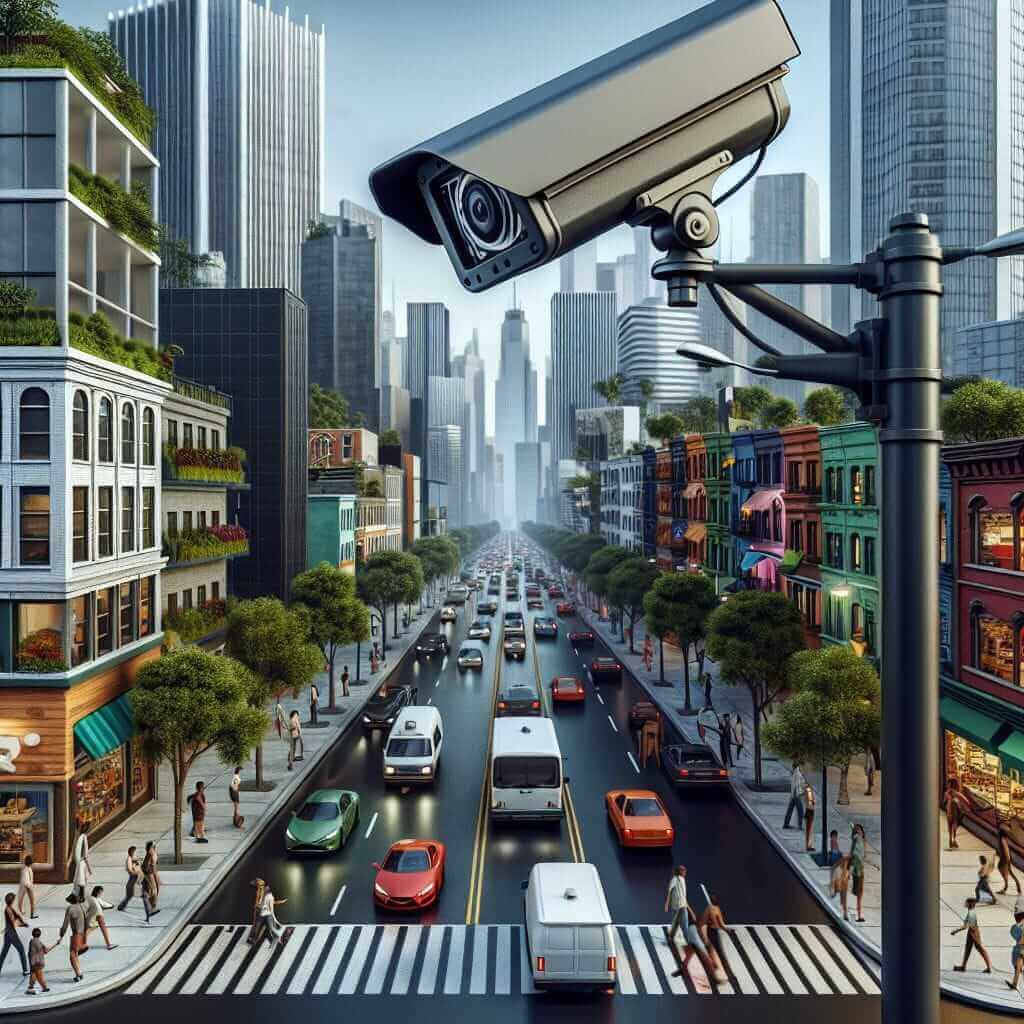The integration of technology into public safety has become a hot-button topic in recent years. This is reflected in the IELTS exam, where essay prompts often center around the implications of using technology to reduce crime and enhance safety measures. This essay will delve into a common essay prompt related to this topic, provide a sample band 8 response, and offer valuable insights into vocabulary and grammar to help you ace your IELTS Writing Task 2.
Here are a few examples of how this topic might be presented in an IELTS task 2 question:
- Some people believe that surveillance technology in public places is essential for ensuring safety, while others argue that it infringes upon personal privacy. Discuss both views and give your own opinion.
- To what extent do you agree or disagree that the benefits of using technology to combat crime outweigh the drawbacks?
- The increasing use of technology in law enforcement is making societies safer. Do you agree or disagree?
Sample Essay Question
For the purpose of this guide, let’s focus on the following essay prompt:
Some people believe that surveillance technology in public places is essential for ensuring safety, while others argue that it infringes upon personal privacy. Discuss both views and give your own opinion.
Essay Analysis
This essay question requires you to address both sides of the argument: the benefits of surveillance technology for public safety and the potential drawbacks related to privacy. You need to present a balanced analysis, acknowledging both perspectives before presenting your own well-justified opinion.
Model Essay
In an age of escalating security concerns, the use of surveillance technology in public areas has sparked considerable debate. While proponents argue that such measures are crucial for deterring crime and ensuring public safety, opponents express concerns about the erosion of privacy. This essay will delve into both sides of this contentious issue before presenting my own viewpoint.
On the one hand, proponents of surveillance technology highlight its efficacy in deterring criminal activity and assisting law enforcement agencies. The ubiquitous presence of CCTV cameras, for instance, can dissuade potential offenders, as the risk of being identified and apprehended is significantly heightened. Moreover, in the unfortunate event of a crime, surveillance footage can provide invaluable evidence to aid investigations and bring perpetrators to justice. This is particularly relevant in high-risk areas such as transportation hubs and crowded public spaces, where the potential for criminal activity is greater.
On the other hand, critics argue that the pervasive use of surveillance technology comes at the expense of individual privacy. They contend that constant monitoring can foster a climate of suspicion and erode the fundamental right to privacy. This is particularly concerning in democratic societies, where the balance between security and liberty is paramount. Furthermore, there are concerns about the potential misuse of surveillance data by authorities, particularly in the absence of robust safeguards and oversight mechanisms.

In conclusion, while I acknowledge the potential of surveillance technology in deterring crime and assisting law enforcement, I believe that its implementation should be approached with caution. Striking a balance between security concerns and individual privacy is crucial. This can be achieved by implementing strict regulations regarding data storage, access, and usage, ensuring transparency and accountability in the use of surveillance technology. Furthermore, public awareness campaigns are essential to educate citizens about their rights and responsibilities in relation to surveillance. Ultimately, the goal should be to harness the benefits of technology while safeguarding the fundamental rights and freedoms of individuals.
(Word count: 319 words)
Writing Tips
- Structure: Ensure your essay follows a clear structure with an introduction, body paragraphs presenting both sides of the argument, and a conclusion stating your opinion.
- Vocabulary: Use topic-specific vocabulary related to technology, surveillance, privacy, and security.
- Grammar: Pay close attention to grammar accuracy, particularly when using complex sentences to present your arguments.
- Examples: Support your arguments with relevant examples to enhance clarity and persuasiveness.
Useful Vocabulary
- Surveillance Technology (n): /səˈveɪ.ləns tekˈnɒl.ə.dʒi/: Technology used to monitor and observe people or places.
- Infringe upon (v): /ɪnˈfrɪndʒ əˈpɒn/: To actively break the limits of something.
- Deter (v): /dɪˈtɜːr/: To discourage someone from doing something.
- Ubiquitous (adj): /juːˈbɪk.wɪ.təs/: Seeming to be everywhere.
- Apprehend (v): /ˌæp.rɪˈhend/: To catch and arrest someone who has committed a crime.
- Erosion (n): /ɪˈrəʊ.ʒən/: The process of gradually destroying something or making it weaker.
- Pervasive (adj): /pəˈveɪ.sɪv/: Existing in every part of something.
- Safeguard (n): /ˈseɪf.ɡɑːd/: A rule or action that is intended to protect someone or something from possible dangers or problems.
Conclusion
Mastering the art of writing a compelling essay on the role of technology in enhancing public safety is crucial for achieving a high band score in the IELTS writing task 2. By understanding the nuances of the topic, using appropriate vocabulary, and structuring your essay effectively, you can confidently express your views and impress the examiners.